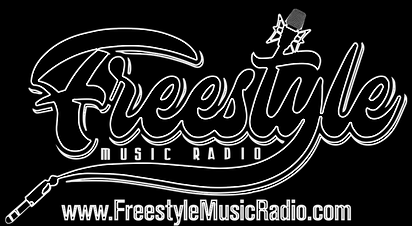Freestyle music is a vibrant and dynamic genre that has evolved significantly over the decades, blending elements from various musical traditions to create a unique and expressive form of artistry. Originating in the late 1970s and early 1980s within the hip-hop community, freestyle initially referred to improvised rapping over beats or instrumental tracks. However, as the genre has matured, it has expanded to encompass a broader range of styles and influences, making it a rich tapestry of musical innovation.
At its core, freestyle is about spontaneity and creativity. Artists in this genre often perform without pre-written lyrics, relying instead on their ability to craft rhymes and melodies on the spot. This improvisational aspect sets freestyle apart from other forms of music, where composition and rehearsal are key. The energy and unpredictability of a freestyle performance can be electrifying, as artists push the boundaries of what is possible within a given timeframe.
The roots of freestyle can be traced back to the early days of hip-hop in New York City. DJs and MCs would often engage in battles or cyphers, where they would take turns rapping over instrumental beats provided by a DJ. These sessions were not only competitive but also served as a way for artists to showcase their lyrical prowess and creativity. Over time, freestyle evolved into a more structured form of performance art, with dedicated freestyle events and competitions popping up in cities around the world.
One of the defining characteristics of freestyle is its emphasis on wordplay and clever rhyming schemes. Artists often use complex metaphors, puns, and allusions to create intricate layers of meaning within their lyrics. This verbal dexterity requires a deep understanding of language and a keen ear for rhythm, making freestyle a highly skilled form of musical expression.
Freestyle has also been influenced by a wide range of other genres, including jazz, soul, R&B, and electronic music. Artists in this genre often incorporate elements from these traditions into their performances, creating a unique blend of sounds and styles. For example, some freestyle artists may use live instruments alongside electronic beats, while others might draw on the improvisational techniques of jazz to create spontaneous melodies.
In addition to its musical innovations, freestyle has also played an important role in shaping hip-hop culture more broadly. Many of today's most influential rappers got their start in freestyle battles or cyphers, honing their skills and building their reputations within these competitive environments. Freestyle has also been a platform for social commentary and political expression, with artists using their performances to address issues such as racism, inequality, and police brutality.
Despite its roots in hip-hop, freestyle has spread far beyond the boundaries of that genre. Today, you can find freestyle performers in a wide range of musical contexts, from jazz clubs to electronic music festivals. This versatility is one of the reasons why freestyle continues to captivate audiences around the world, offering a fresh and exciting take on musical performance.
One of the most notable aspects of freestyle is its global reach. From the streets of New York City to the bustling markets of Lagos, artists are pushing the boundaries of what it means to create music in real-time. In countries like Brazil, France, and Japan, freestyle has taken on unique local flavors, incorporating elements from traditional music and dance forms.
The rise of social media and streaming platforms has also played a significant role in the evolution of freestyle. Artists can now share their performances with global audiences instantly, leading to a surge in creativity and collaboration. Online battles and cyphers have become commonplace, allowing artists from different parts of the world to connect and compete in real-time.
In recent years, freestyle has seen a resurgence in popularity, thanks in part to its influence on mainstream hip-hop and pop music. Artists like Kendrick Lamar, Eminem, and Drake have all cited freestyle as an inspiration for their work, incorporating elements of improvisation and wordplay into their own performances. This cross-pollination of styles has led to a new wave of innovation within the genre, as artists continue to push the boundaries of what is possible.
Freestyle music is not just about the performance; it's also about the community that surrounds it. Freestyle events often bring together people from diverse backgrounds, united by their shared love for improvisational artistry. These gatherings can be powerful spaces for self-expression and cultural exchange, fostering a sense of belonging and camaraderie among participants.
In conclusion, freestyle music is a testament to the power of spontaneity and creativity in artistic expression. From its humble beginnings in the hip-hop community to its global influence today, freestyle has proven itself to be a versatile and enduring form of musical artistry. Whether performed on stage or shared online, freestyle continues to captivate audiences with its energy, innovation, and deep connection to cultural traditions around the world.
 1.2k
Freestyle
1.2k
Freestyle

 1
1


